Outsourcing to Kosovo
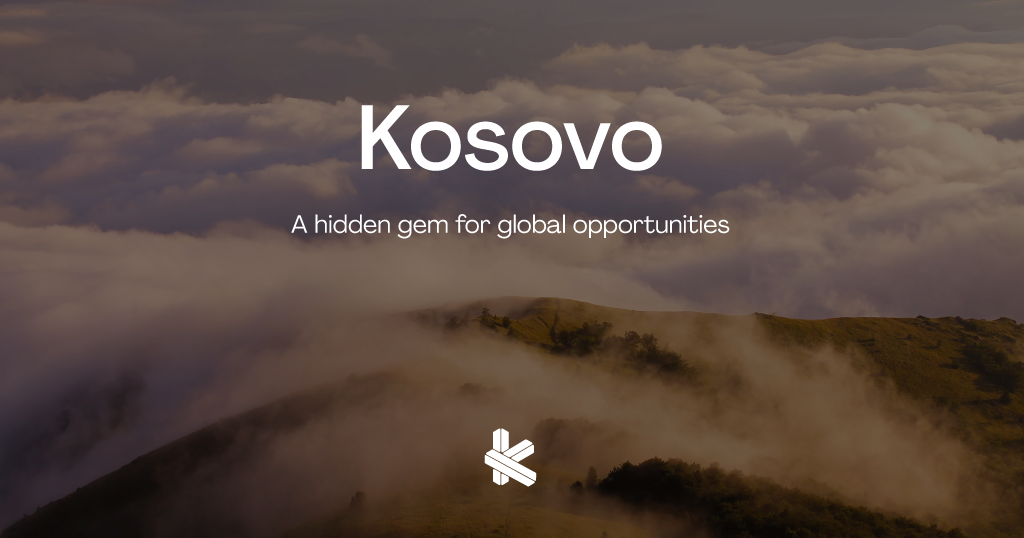

Whether you’re an investor, entrepreneur, or policymaker, this blog aims to shed light on the great opportunities, key players, and legislative landscape in Kosovo’s ICT industry.
The Hidden Gem for Global Opportunities
With a population of 1.8 million, 56% of which is under 35 years old, Kosovo boasts a young and skilled workforce. The multilingual population and the widespread use of English make it an attractive destination for international businesses. Moreover, the official currency is the Euro, simplifying financial transactions for European entities.
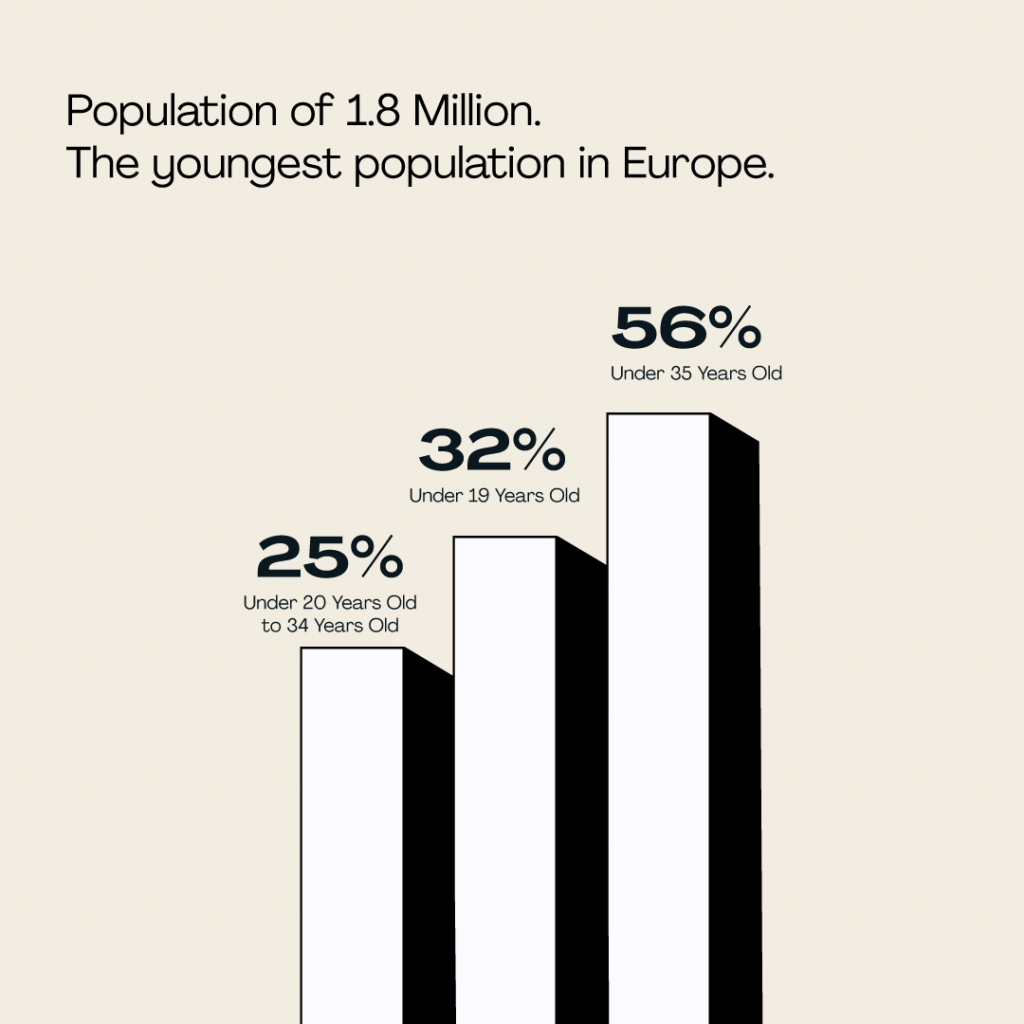
Compliance and Trade Agreements
Kosovo’s legislative framework is harmonized with European Union standards, making it easier for EU-based companies to operate in the country. Kosovo is a member of several international trade agreements, including the Stabilization and Association Agreement (SAA) with the EU and the Central European Free Trade Agreement (CEFTA). It also enjoys free trade with Turkey and the United Kingdom. Understanding this legislative landscape is crucial for businesses aiming to establish a foothold in Kosovo.
The Economic Landscape
The country’s economy is on an upward trajectory, with a GDP of US $9.43 billion in 2022 and a growth rate of 10.7%. The financial sector is diverse, featuring 11 private banks, 14 insurance banks, and 11 microfinance institutions. This robust economic landscape offers fertile ground for investments, particularly in the ICT sector.
The Heart of the Matter: Kosovo’s ICT Sector
The ICT sector is the fastest-growing industry in Kosovo, both in terms of companies and overall turnover. The government has designated this sector as one of its six priorities for the years 2021-2025. The investment in training IT company employees in Kosovo has increased by 43% from 2021 to 2022, according to the STIKK Association, Kosovo IT Barometer Report 2023. Remarkably, Kosovo has the highest internet user penetration in Europe at 96.4%, making it a digital-first country. The sector is fully operational on Cloud platforms, and there’s a concerted effort to make it the main driver for economic growth.
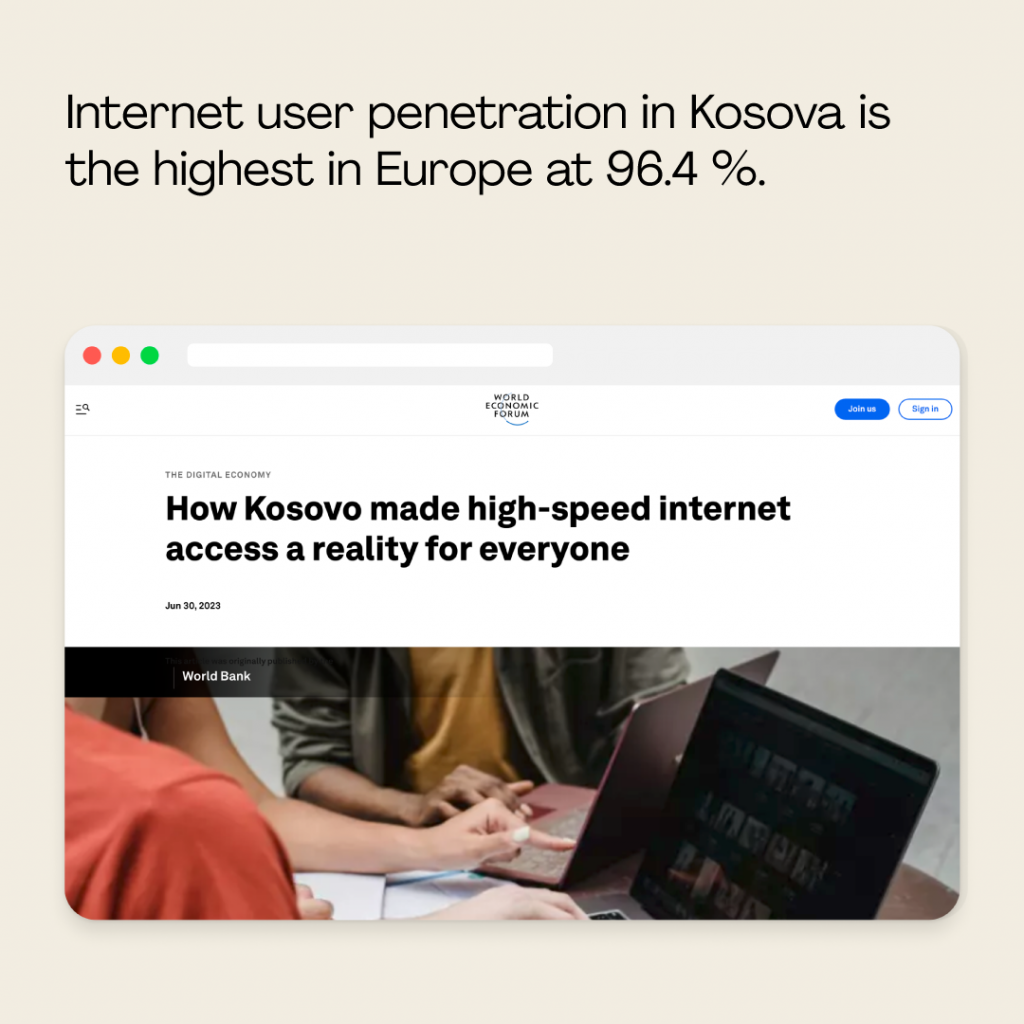
The Talent Pool
Kosovo produces over 2,600 graduates annually in IT and electronic engineering. The employment growth in IT companies has been 30% since 2017, and the export growth is also impressive at 30% since 2020. This highly educated workforce fuels the ICT sector, making Kosovo an attractive destination for global companies.
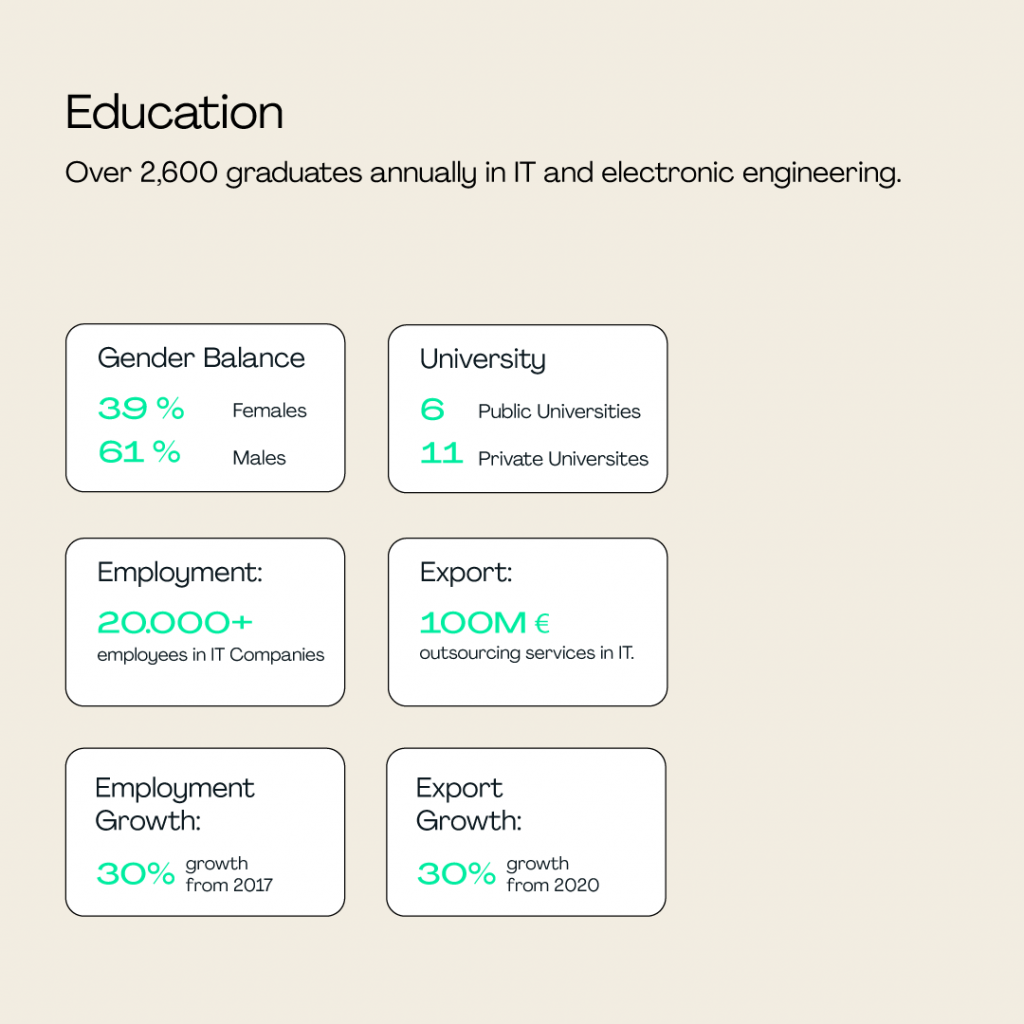
Key Stakeholders in the ICT Sector
Several organizations and ministries play a pivotal role in shaping the ICT landscape in Kosovo. These include:
- Ministry of Economic Development (MED)
- Kosovo Investment and Enterprise Agency (KIESA)
- Ministry of Education, Science and Technology (MEST)
- Kosovo ICT Association (STIKK)
- Innovation Centre of Kosovo (ICK)
These stakeholders are instrumental in policy formulation, investment promotion, and overall sector growth.
The Business Landscape: Types of ICT Companies
The ICT sector in Kosovo is predominantly made up of small and medium-sized enterprises. About 48% of these companies have more than 50 employees and a turnover exceeding €500,000. This agile and dynamic business environment is ideal for startups and established companies alike.
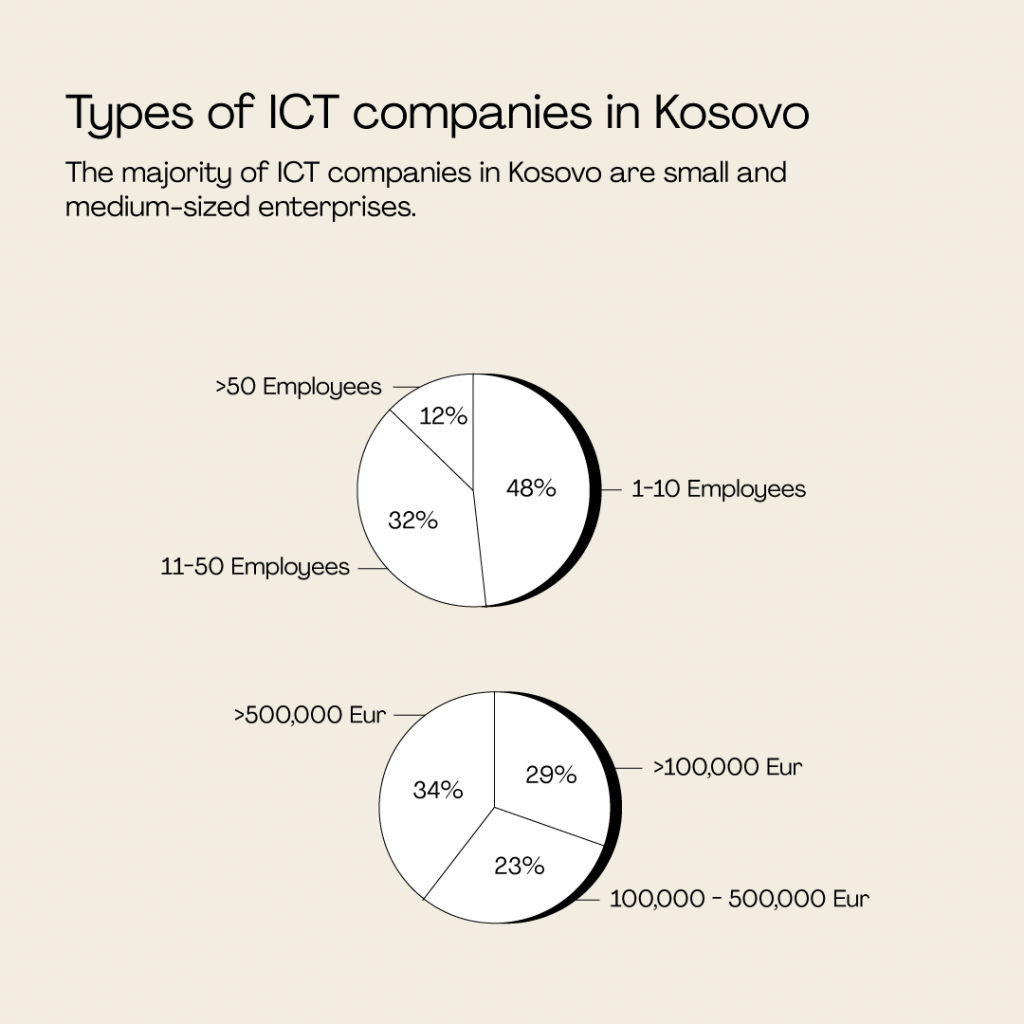
Going Global: Export Markets for Kosovo’s ICT
Kosovo’s ICT products and services have a global reach. The main export destinations include the DACH countries (Germany, Austria, Switzerland), the USA & Canada, the Balkans, Scandinavian countries, and the United Kingdom. Interestingly, 63% of these exports are direct to clients, highlighting the sector’s international competitiveness.
The Final Byte
Kosovo’s ICT sector is a land of untapped opportunities. With its young and skilled workforce, supportive legislative environment, and growing economy, Kosovo is not just ready for the future; it is the future.
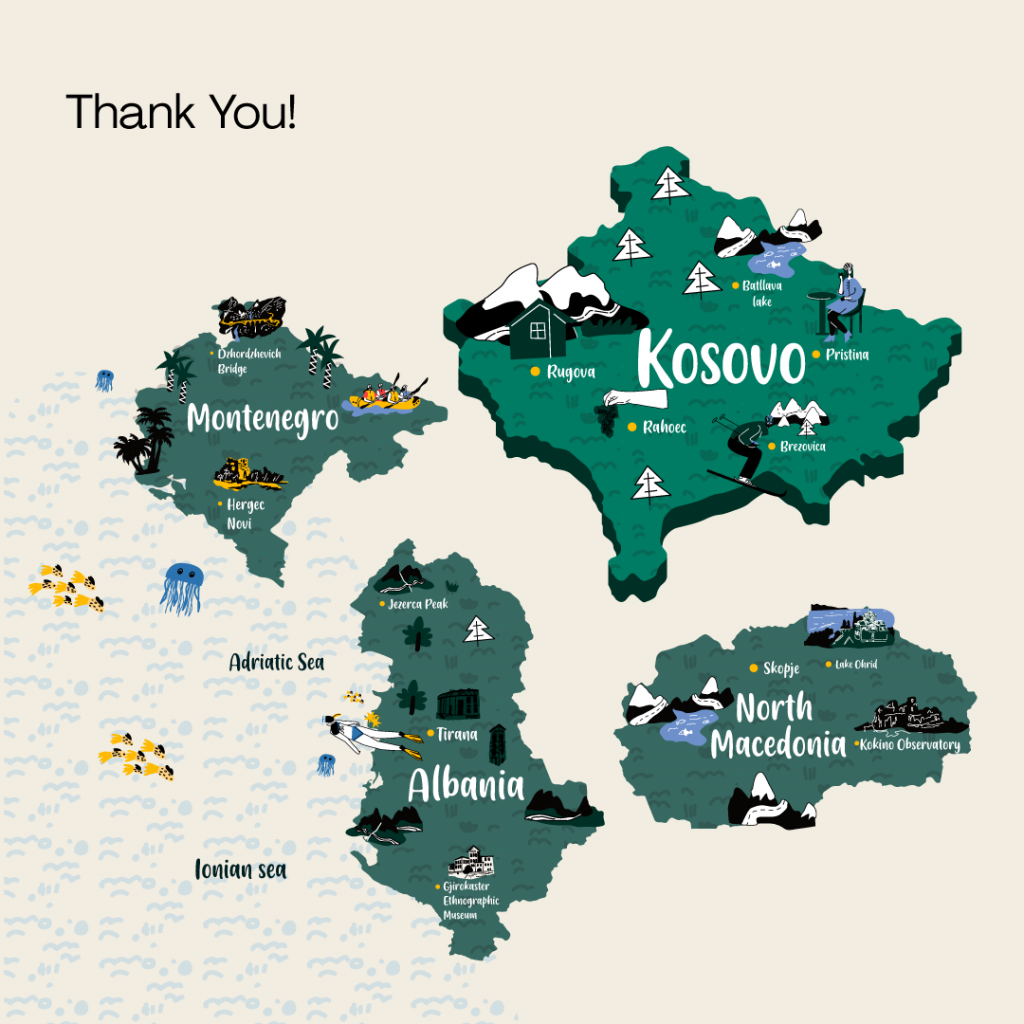
Looking for your ideal outsourcing partner in Kosovo? Contact us at [email protected] and let’s start building the solutions that your business needs!